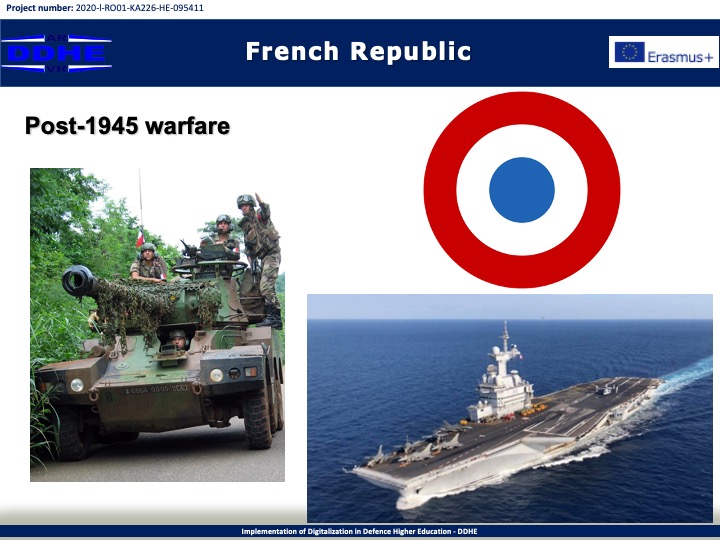
Post-1945 warfare
Following the 1939–45 war, decolonization spread through the former European empires. By 1960 France had lost its direct military influence over all of its former colonies in Africa and Indochina. Nonetheless, several colonies in the Pacific, Caribbean, Indian Oceans and South America remain French territory to this day and France kept a form of indirect political influence in Africa colloquially known as the Françafrique. As President of the French Republic, Charles de Gaulle oversaw the development of French atomic weapons and promoted a foreign policy independent of U.S. influence. He also withdrew France from the NATO military command in 1966—although remaining a member of the western alliance. The effect of withdrawal was reduced by continued cooperation between the French military and NATO, though France did not formally rejoin the NATO military command until 2009.
As a nuclear power and having some of the best trained and best equipped forces in the world, the French military has now met some of its primary objectives which are the defense of national territory, the protection of French interests abroad, and the maintenance of global stability.
France has encouraged military cooperation at an EU level, starting with the formation of the Franco-German Brigade in 1987 and Eurocorps in 1992, based in Strasbourg. In 2009 a battalion of German light infantry was moved to Alsace, the first time German troops had been stationed in France since the Nazi occupation of World War II.
Treść jest rozpowszechniana na licencji Pewne Prawa Zastrzeżone Uznanie Autorstwa Na Tych Samych Warunkach 4.0